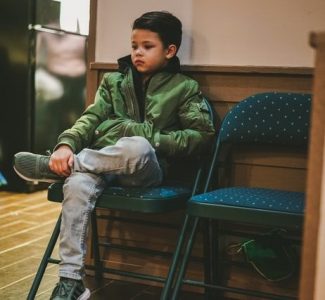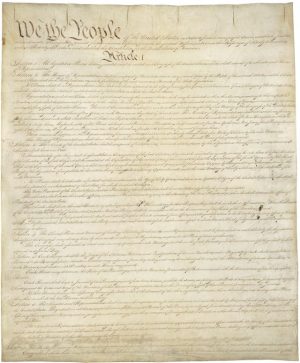Last Updated on August 6, 2024 by Michelle Ball
By Michelle Ball, Sacramento California Expulsion, Special Education, sports/CIF, College, Education and School Attorney/Lawyer for Students since 1995
Schools may legally question students to investigate bullying, ask about fights, or look into broken school rules. But, should students talk when questioned?
Students Can Incriminate Themselves
A school investigation can end up in a student revealing they committed an expellable offense and land them at the local continuation school. Sometimes the student may even be referred to law enforcement for what they say. As such, student “talking” and telling a school bad acts the student committed can be a bad idea.

Everything students tell a school will be used against them.
As students will never get any kind of “you have the right to remain silent” type of warning prior to a school interview, they often think they have to talk.
Guide a Student BEFORE a School Interview
How do we prevent student confessions that end up getting them suspended and expelled? Parents must educate students to politely decline to make a statement.
The problem is that students have been raised to respect and comply with authority figures. Well-mannered students usually feel a sense of obligation to “tell all” to school principals, teachers, and adults…
Unfortunately, when students “tell all” to a vice principal and that “all” involves potential sexual harassment, threats, fights, etc., students are not hailed nor praised for their honesty, they are kicked out!

Simple Rules
Most students will probably be questioned at some point in their long school careers. Many times this can be innocent. But if not, parents can arm a student in advance by instructing them as follows:
1) If you are ever called into the office, be polite.
2) If school personnel ask you questions about something you or your friends did, respectfully say: “My parents have told me that I am not allowed to answer questions without them.”
3) Ask that your parents be called.
Parents may even want to print up a formal card with these instructions and all contact information for the parent(s) to be reached in case of looming student interrogation.
Schools Still May Not Call
Despite these instructions, and even a card, there is no guarantee or obligation for the school TO call parents. This is just the best chance students have to get through the school interview process, unscathed.
The fortitude of the student to politely stand up to or refuse to answer questioning, if the school won’t call, will be important.
Ultimately, there is no one size fits all answer for these scenarios. Students and parents can only do the best they can.
When Parents Are Called
If a parent is called about student discipline or a school needing to speak with a student, going to the school site is important.

Once a parent arrives, the student can be excused. Then the parent can speak to school personnel alone about the requested student interview.
Then, if it turns out the school is accusing the student of selling drugs, having a weapon, making homicidal threats, grabbing a girls private parts, or other heinous school acts, the parent can refuse the student interview.
Will the School Hold Answers Against Them?
I have heard some school districts, and even attorneys, allege that the school can hold a student’s silence against them. Can they? Well, it is true that there is no privilege to “claim the Fifth” in non-criminal questioning.
However, I have overturned an expulsion based in part on the fact that the school tried to hold the student’s silence against them and presumed guilt. The County Board ripped the school district’s attorney a new one when she tried to raise that argument. Did she have an argument? Maybe, maybe not. I always argue against presuming any guilt from silence.
Regardless, even if the school presumes guilt from student silence, the student is often better off not talking, particularly if what they say may be construed against them.
What do parents think a school will do if a student does talk with them? Not hold it against them? No, the school will hold anything against the student they can: silence, speech, anything, so long as it fills their narrative.
So regardless of potential risks or school arguments that students are guilty due to their silence, I say lean on the side of caution. Try to be quiet. Protect the student!
Don’t Make the School’s “Case” For Them
When student’s confess to bad acts at school, the school can proceed to hearing and expel them.
But why should the student do the school officials’ jobs for them? Make the school do their investigation and prove their allegation without the student handing it to them. Make the school work for it!
Michelle Ball is a student lawyer who assists in school interviews, suspensions, expulsions and many other discipline matters. As a school attorney for students in Sacramento, she can get involved statewide, in Redding, Hanford, Burbank, Clovis, Anaheim, Fair Oaks, Lincoln, and wherever students need her.
Originally written March 23, 2011




